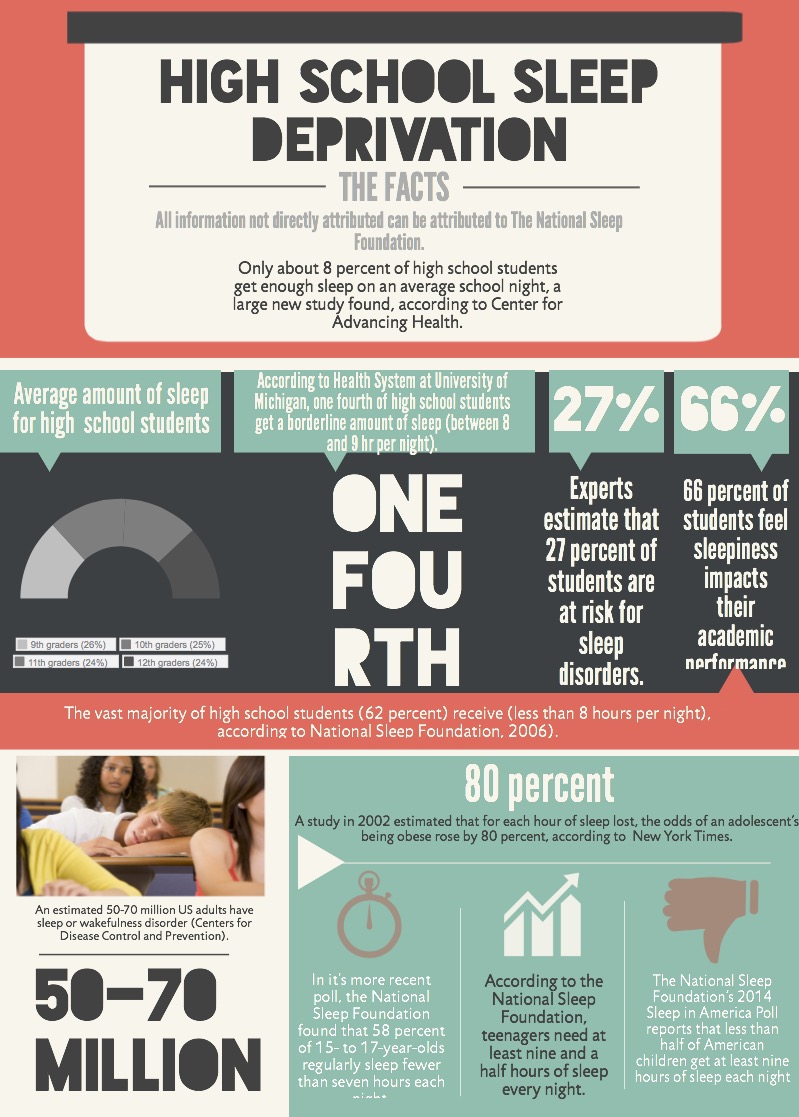May sleep be with you
Important facts to keep in mind:
- During teenage years, biological sleep patterns shift, making it more natural for teens not to have the ability of falling asleep before 11:00 pm., according to the National Sleep Foundation.
- Teens need about 8 to 10 hours of sleep each night to take on their days most efficiently; however, one study found that only 15 percent of students reported sleeping that amount (National Sleep Foundation).
- According to the National Sleep Foundation, not getting enough sleep or having sleep difficulties can cause one to forget names or numbers, be more prone to pimples and act more aggressive.

Many teens suffer from sleep disorders, such as narcolepsy or insomnia. If you suffer from a sleeping disorder or struggle to fall asleep, here are some tips that will aid you in regaining control over your sleep schedule (based on information from Palo Alto Medical Foundation):
- Get rid of caffeine. Foods that have high caffeine, such as chocolate or most sodas, actually make a person less likely to fall asleep.
- Make it a goal to maintain a regular sleep schedule.
- Do not exercise after dinner.
- Wear cozy pajamas to sleep in.
- Set a constant, specific temperature to sleep in every night.
- Avoid electronics or bright screens before bed, i.e. cell phones, computers, TV, etc.
- Use meditation or relaxation techniques; such as listening to quiet music or an ocean wave simulation.
Donate to The Kirkwood Call
$1025
$500
Contributed
Our Goal
Your donation will support the student journalists of Kirkwood High School. Your contribution will allow us to purchase equipment and cover our annual website hosting costs.
About the Contributor

Anna Mullendore, features writer
Grade: 12
Twitter handle: N/A
If you could be another Call staffer, who would you be?: I would be Katie Hackett because her wit is inspirational.
Interests: dogs,...







